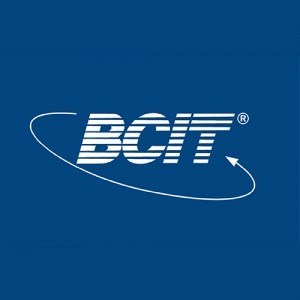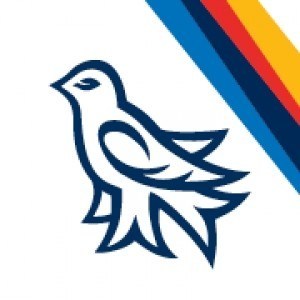Photos of university / #lifeatbcit
Environmental Health - Public Health Inspection at British Columbia Institute of Technology prepares students to become dedicated public health inspectors who protect communities by ensuring safe food, water, and environmental conditions. The program offers comprehensive training in environmental microbiology, food safety, water quality management, solid and liquid waste management, communicable disease control, and occupational health and safety. Throughout the coursework, students develop strong skills in inspection techniques, risk assessment, legislation, and communication, enabling them to assess environmental hazards and implement effective control measures. The curriculum combines theoretical knowledge with practical field experience through co-op placements, where students work with industry professionals and public health agencies. Graduates of this program are equipped to work in various settings, including local health authorities, inspection agencies, food establishments, and environmental consulting firms. The program emphasizes a multidisciplinary approach, integrating sciences, policy, and public health principles, to prepare students for the challenges of maintaining and improving community health standards. Students learn how to conduct inspections, investigate environmental health complaints, and provide recommendations to ensure compliance with provincial and federal regulations. The program also emphasizes the importance of communication skills, ethical practices, and adherence to safety standards, fostering responsible professionals committed to public safety. Upon completion, graduates are eligible for registration as certified public health inspectors, contributing significantly to the protection and promotion of health in diverse communities. The BCIT Environmental Health - Public Health Inspection program is designed to meet industry demand for qualified specialists who can address emerging environmental health issues, adapt to technological advancements, and advocate for sustainable practices. This program not only provides a solid foundation in environmental health sciences but also ensures students are prepared for lifelong careers dedicated to safeguarding public health and the environment.
The Environmental Health – Public Health Inspection program at the British Columbia Institute of Technology (BCIT) prepares students for a dynamic career in safeguarding public health through environmental health inspection and management. This comprehensive training program focuses on developing the knowledge and skills necessary to identify, evaluate, and control environmental health hazards in a variety of settings, including food establishments, water systems, waste management, and other community environments. Throughout the program, students gain a solid understanding of microbiology, sanitation, food safety, environmental safety regulations, and disease prevention methods. The curriculum emphasizes practical, hands-on learning through laboratory exercises, field work, and internships, providing real-world experience that is crucial for ensuring compliance with public health laws and standards.
Students will learn about the principles of environmental health, including the importance of hygiene, sanitation, and pest control, as well as the legal and ethical responsibilities of public health inspectors. The program explores the roles of government agencies and the legal framework governing public health inspection activities. As part of their training, students study techniques for conducting inspections, investigations, and assessments to determine potential health risks, and they are taught effective communication skills to interact professionally with business owners, community members, and other stakeholders.
The program also emphasizes the importance of sustainable practices and environmental stewardship, encouraging students to develop solutions that protect public health while respecting the environment. Graduates of the program are equipped to pursue careers in municipal public health departments, private consulting firms, food safety agencies, and other organizations committed to maintaining healthy communities. With a combination of theoretical knowledge and practical skills, this program ensures that graduates are well-prepared to enter the workforce as competent, ethical, and proactive public health inspectors dedicated to protecting the health of the population.
Program Requirements: The Environmental Health — Public Health Inspection program at British Columbia Institute of Technology (BCIT) is designed to prepare students for careers in environmental health and public health inspection. To complete this program, students must fulfill core coursework in environmental health principles, disease prevention, microbiology, epidemiology, and food safety. Additionally, students are required to participate in technical training sessions, laboratory practicals, and fieldwork to gain hands-on experience in inspecting food establishments, water systems, and environmental hazards. The program also emphasizes legal, regulatory, and ethical aspects of public health, requiring students to study relevant legislation and standards. Completion of a practicum or work placement is typically mandatory, providing real-world experience and professional networking opportunities. Students must also pass comprehensive assessments and examinations to validate their understanding of public health inspection procedures and protocols. Strong communication skills are essential; therefore, the program includes training in report writing, oral presentations, and stakeholder engagement. Admissions requirements generally include a high school diploma or equivalent, with preference given to applicants with background in sciences or health-related fields. Professional certifications, such as the Environmental Health Officer certification, may be pursued following program completion to enhance employment prospects. Overall, the program aims to equip students with the technical knowledge, practical skills, and regulatory understanding necessary to protect public health through effective environmental inspections, fostering competence and ethical standards in the field of environmental health.
The British Columbia Institute of Technology offers various financial options to support students enrolled in the Environmental Health — Public Health Inspection program. Tuition fees for the program are structured to be accessible and competitive within the region, with international and domestic students paying different rates. In addition to standard tuition, students should consider additional costs such as textbooks, supplies, and examination fees. BCIT provides numerous financial aid opportunities, including government grants, bursaries, and scholarships that are available to eligible students. The government of British Columbia offers student loans and grants aimed at supporting post-secondary education, which students can apply for through the StudentAid BC program. BCIT also partners with private organizations to offer scholarships specific to environmental health and public health students, recognizing academic achievement and community involvement.
Besides government support, BCIT encourages students to explore external scholarship opportunities through various community organizations and industry partnerships. Some students may also qualify for work-study positions or part-time employment opportunities facilitated by the institute, which can help offset tuition costs and provide relevant industry experience. The college provides detailed financial planning resources and counseling services to assist students in navigating funding options and budgeting for their studies. Payment plans may be available, allowing students to split tuition payments over multiple installments.
Furthermore, some students utilize employer-sponsored education reimbursement programs if they are employed in related fields, such as food safety, health regulation, or environmental services. International students are typically required to pay higher tuition fees; however, they are also eligible for certain internal scholarships and bursaries. BCIT recommends that prospective students consult the Financial Aid Office and the program’s webpage regularly, as funding opportunities and eligibility criteria are periodically updated. Overall, BCIT is committed to making the Environmental Health — Public Health Inspection program financially accessible, ensuring students can focus on their studies and future professional endeavors without undue financial hardship.
The Environmental Health — Public Health Inspection program at the British Columbia Institute of Technology (BCIT) is designed to prepare students for a career in environmental health and public health inspection. The program focuses on equipping students with the knowledge and skills necessary to promote public health through effective inspection and regulation of food safety, water quality, sanitation, and environmental hazards. Students learn about microbiology, toxicology, epidemiology, and public health legislation, gaining a comprehensive understanding of how to identify and mitigate health risks in various settings. The curriculum emphasizes both theoretical foundation and practical application, including fieldwork and internships, to ensure graduates are prepared for real-world challenges.
The program typically spans over two academic years, combining classroom instruction with hands-on training. Students take courses in environmental science, health and safety standards, food inspection procedures, and communicable disease control. Emphasis is placed on developing technical inspection skills, report writing, communication, and problem-solving abilities necessary for effective public health inspectors. Graduates from this program are qualified to work in diverse environments such as municipal health departments, food establishments, water treatment facilities, and other organizations tasked with ensuring community health and safety.
Admission to the program generally requires a diploma or equivalent, with a strong background in sciences such as biology and chemistry being advantageous. The program also prepares students for certification and licensing exams required to become certified public health inspectors in British Columbia. Upon completion, students may pursue further certifications or employment opportunities within local or provincial health authorities. The BCIT program is recognized for its practical focus and industry relevance, ensuring graduates are well-equipped to protect public health and contribute positively to the community.



